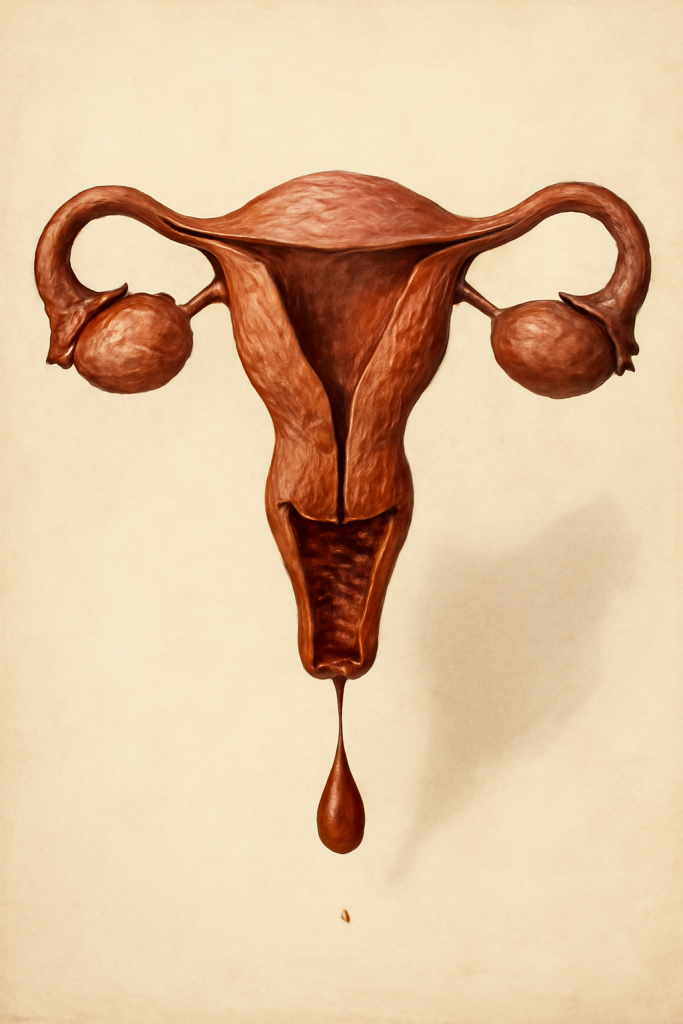Polycystic Ovary Syndrome (PCOS) is a common condition that affects many women of reproductive age. It can cause a variety of symptoms, such as irregular periods, acne, excess hair growth, and weight gain. While medical treatments are available, many women are looking for natural ways to manage their PCOS symptoms. In this article, we’ll discuss how diet, exercise, and lifestyle changes can help with PCOS treatment naturally.
What is PCOS?

PCOS stands for Polycystic Ovary Syndrome. It is a hormonal imbalance that affects how the ovaries function. Women with PCOS often have higher levels of male hormones, which can lead to symptoms like acne, facial hair, and irregular periods. It can also make it harder to get pregnant. But don’t worry, there are many ways to manage PCOS naturally and live a healthy life.
Why is Natural Treatment Important for PCOS?
Natural treatments for PCOS can help you manage your symptoms in a way that supports your overall health. Unlike traditional medications, which often come with side effects, natural methods focus on balancing your body and mind. The benefits of natural PCOS treatments include:
Reduced side effects: Natural methods typically have fewer side effects compared to prescription medications.
Holistic approach: Natural treatments focus on overall well-being and treat the root cause of PCOS, not just the symptoms.
Sustainable results: With a focus on healthy living, natural treatments provide long-term benefits and support healthy lifestyle choices.
Now, let’s dive into the best natural treatments for PCOS.
Best Diet for PCOS Treatment
Diet plays a huge role in managing PCOS symptoms. A balanced diet can help regulate insulin levels, manage weight, and improve hormonal balance. Here are some diet tips to help treat PCOS naturally:
1. Focus on Whole Foods

Eating whole foods is one of the best ways to support your body and manage PCOS. These include:
Vegetables: Leafy greens like spinach, kale, and broccoli are packed with nutrients that support your health.
Fruits: Berries, apples, and citrus fruits are rich in antioxidants and vitamins.
Whole grains: Brown rice, quinoa, and oats are excellent sources of fiber, which can help balance blood sugar.
Lean proteins: Chicken, fish, tofu, and eggs are great sources of protein that help control hunger and maintain muscle mass.
2. Limit Processed Foods

Processed foods can spike blood sugar levels and worsen PCOS symptoms. Avoid sugary snacks, processed meats, and refined carbs like white bread and pasta. Instead, opt for complex carbs like whole grains and vegetables.
3. Incorporate Healthy Fats
Healthy fats support hormone production and reduce inflammation. Include sources of omega-3 fatty acids in your diet, such as:
Flaxseeds
Chia seeds
Walnuts
Salmon
4. Stay Hydrated
Drinking enough water throughout the day helps your body stay hydrated, supports digestion, and aids in hormone regulation. Aim for at least 8 glasses of water daily.
5. Consider Supplements
Certain supplements may help with PCOS treatment. Here are some that can support your health:
Inositol: Helps regulate insulin and improve ovulation.
Vitamin D: Many women with PCOS are deficient in vitamin D. Taking a supplement can improve hormonal balance.
Magnesium: Can help with insulin sensitivity and reduce symptoms like cramps.
Best Exercise for PCOS Treatment
Exercise is another important aspect of managing PCOS naturally. Regular physical activity can help regulate your weight, balance hormones, and improve overall health. Here are some exercise tips for PCOS treatment:
1. Aim for Consistency
The key to using exercise to treat PCOS naturally is consistency. Aim for at least 150 minutes of moderate aerobic activity each week. This can include activities like:
Walking
Swimming
Cycling
Dancing
2. Strength Training
In addition to cardio, strength training is crucial for managing PCOS. Building muscle helps boost metabolism, improve insulin sensitivity, and maintain a healthy weight. Try incorporating the following exercises into your routine:
Squats
Lunges
Push-ups
Dumbbell exercises
3. Yoga and Stretching
Yoga is beneficial for PCOS as it reduces stress, improves flexibility, and helps balance hormones. Some yoga poses can help with digestion, lower stress levels, and increase blood flow to the reproductive organs. Consider adding yoga to your weekly routine.
4. HIIT Workouts
High-Intensity Interval Training (HIIT) can also be effective for managing PCOS. HIIT involves short bursts of intense exercise followed by brief rest periods. This type of workout boosts metabolism, helps with weight loss, and improves insulin sensitivity.
Lifestyle Tips for PCOS Treatment
In addition to diet and exercise, certain lifestyle changes can help treat PCOS naturally. These include:
1. Manage Stress
Chronic stress can worsen PCOS symptoms by increasing cortisol levels, which in turn affect insulin sensitivity and hormone balance. Finding ways to manage stress is essential for PCOS treatment. Here are some ways to reduce stress:
Meditation: Practicing mindfulness meditation can help calm your mind and reduce stress.
Deep breathing: Deep breathing exercises can help lower cortisol and relax your body.
Spending time in nature: Take walks in the park or spend time outside to connect with nature and relieve stress.
2. Get Enough Sleep
Poor sleep can disrupt hormone production and worsen PCOS symptoms. Aim for 7-9 hours of quality sleep each night. Tips for better sleep include:
Create a bedtime routine: Go to bed and wake up at the same time each day.
Limit screen time: Avoid electronic devices at least an hour before bed.
Make your bedroom comfortable: Keep your room cool, dark, and quiet for a restful night’s sleep.
3. Regular Check-Ups
PCOS can affect many aspects of your health, including your menstrual cycle, fertility, and heart health. Regular check-ups with your healthcare provider can help you stay on top of your condition and make adjustments to your treatment plan as needed.
Frequently Asked Questions (FAQs) About PCOS Treatment
1. Can PCOS be cured naturally?
While there is no cure for PCOS, symptoms can be managed effectively with a healthy diet, exercise, and lifestyle changes. Natural treatments can help regulate your hormones and improve your quality of life.
2. What is the best diet for PCOS treatment?
A balanced diet that includes whole foods, healthy fats, and plenty of fiber is the best way to treat PCOS naturally. Limiting processed foods and refined sugars can also help improve symptoms.
3. How much exercise is needed for PCOS treatment?
Aim for at least 150 minutes of moderate exercise per week, along with strength training exercises two to three times a week. Incorporating yoga and stress-relieving activities can also be beneficial.
4. Can stress affect PCOS?
Yes, stress can worsen PCOS symptoms by increasing cortisol levels, which affect insulin sensitivity and hormone balance. Managing stress is an important part of PCOS treatment.
5. Can I get pregnant if I have PCOS?
Yes, many women with PCOS can get pregnant. However, it may take longer for some women to conceive. Maintaining a healthy lifestyle, including a balanced diet and regular exercise, can help improve fertility.
Conclusion
Managing PCOS naturally involves a combination of diet, exercise, and lifestyle changes. By focusing on whole foods, exercising regularly, managing stress, and getting enough sleep, you can improve your symptoms and lead a healthy life. While there is no cure for PCOS, these natural treatments can help you feel better, regulate your hormones, and improve your quality of life.
If you have PCOS, remember that you’re not alone. With the right approach, you can take control of your health and well-being. Consider speaking with a healthcare provider before making significant changes to your diet or exercise routine to ensure you’re making the best decisions for your body.

Pingback: End Stages of Endometriosis: Hope Best Treatment in 2025